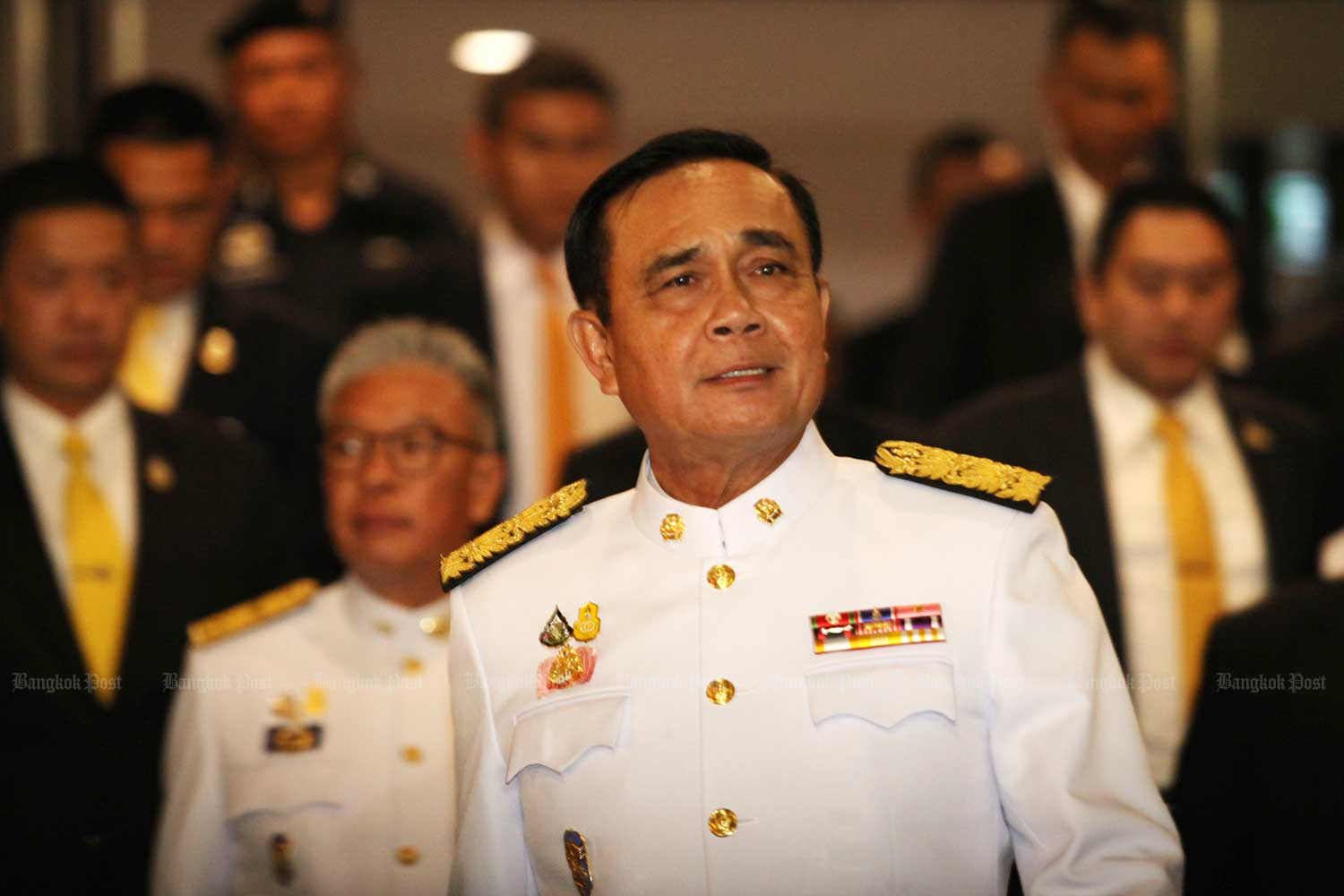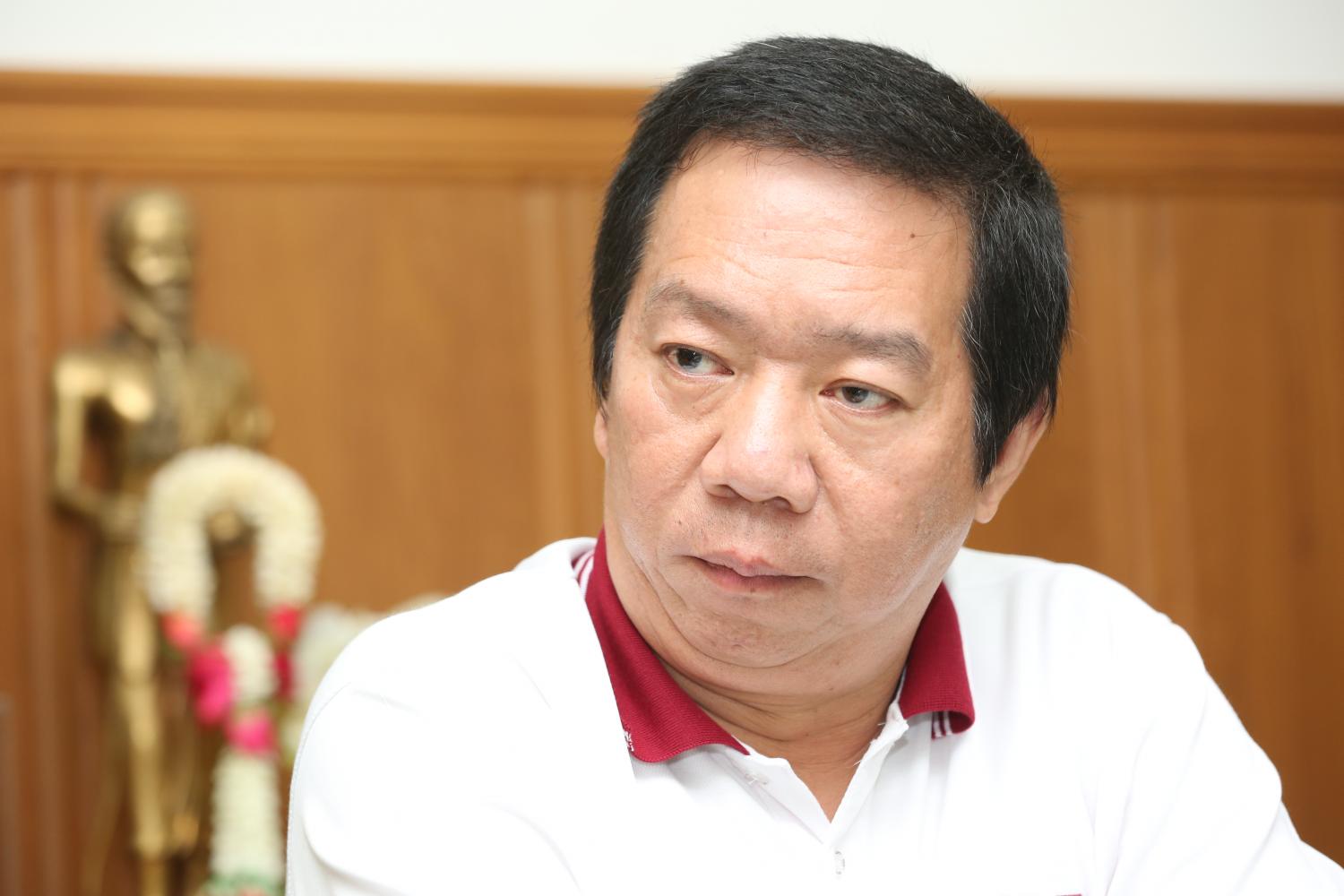
The Constitutional Court has accepted a petition to rule on the qualifications of Prime Minister Prayut Chan-o-cha, along with a second case that could spell further trouble for the opposition Future Forward Party (FFP).
The complaint against FFP was filed by lawyer Natthaporn Toprayoon, who accused party leader Thanathorn Juangroongruangkit, his party and executives of trying to end the constitutional monarchy.
The court also said it would issue a ruling on Aug 27 on the qualifications of ministers, including Suvit Maesincee, who was named Higher Education, Science, Research and Innovation Minister in the new cabinet.
The court said there was no need to suspend Gen Prayut from work, as the petition and supporting documents do not show enough evidence of damage caused by the accused. In nay case, the petition did not seek a suspension.
House Speaker Chuan Leekpai forwarded the petition, which was initiated by 110 MPs from seven opposition parties, to the charter court for review.
The MPs want the court to rule whether Gen Prayut’s status as premier should be terminated because, as head of the now-defunct National Council for Peace and Order (NCPO), he was a “state official”. Some believe that such a status should have barred him from being considered as a candidate for the premiership following the March 24 elections.
In the case of the FFP, Mr Natthaporn told the court that the way the party’s regulations are written, it says it supports “constitutional democracy”, which could mean it actually supports other systems than “constitutional monarchy”.
FFP secretary-general Piyabutr Saengkanokkul, a legal scholar who has spoken out about abuse of the lese majeste law and related subjects, has been a frequent target of royalists who view the party as a major threat to peace and order.
In yet another case, serial petitioner Srisuwan Janya on Friday asked the Office of the Attorney General to seek a Constitutional Court injunction to prevent Mr Thanathorn from committing “treason”.
Mr Srisuwan, secretary-general of an organisation that calls itself the Association to Protect the Thai Constitution, was referring to interviews Mr Thanathorn gave to international media in which he was critical of Thailand. The Future Forward leader recently returned from a trip abroad in which he visited Brussels, Berlin, London, New York and Washington.
Mr Thanathorn, along with party spokeswoman Pannika Wanich, gave numerous interviews about the Thai political situation to major US media including The New York Times and the NBC network (video below) while they were abroad. Their content could be deemed as violating sections 119 and 127 of the Criminal Code in Mr Srisuwan’s view.
Section 119 refers to acts that undermine the state’s sovereignty and Section 127 covers acts considered threats to national security, the activist said.
Mr Thanathorn could also be deemed to be in violation of Section 49 of the constitution that prohibits acts that undermine democracy, he added.
He accused Mr Thanathorn of repeatedly telling American media that he wanted the US to step in to help restore democracy because Thailand was still under the yoke of the now-defunct National Council for Peace and Order (NCPO).
If the court issues an injunction prohibiting Mr Thanathorn from defaming Thailand, he could then face criminal charges if he refuses to stop, Mr Srisuwan said.
“I don’t want [him] to set a bad precedent for other politicians,” he said. “As an MP who is paid with taxpayers’ money, he has to think about the country’s reputation. … He can’t just keep defaming the country because he didn’t get what he wants.”
Mr Thanathorn denied betraying the country and being a threat to national security, saying he was only updating the international community on the current state of Thai politics.
It is those accusing him of committing treason who are actually betraying the country because they are serving dictators, Mr Thanathorn said in response to Mr Srisuwan’s accusations.
Mr Thanathorn is already suspended from his MP duties by the charter court pending its ruling on another case. He is accused of holding shares in a media firm while applying to run in the March 24 election. The constitution prohibits MP candidates from having shares in a media company. He maintains that he transferred the shares before he registered to run in the election.


